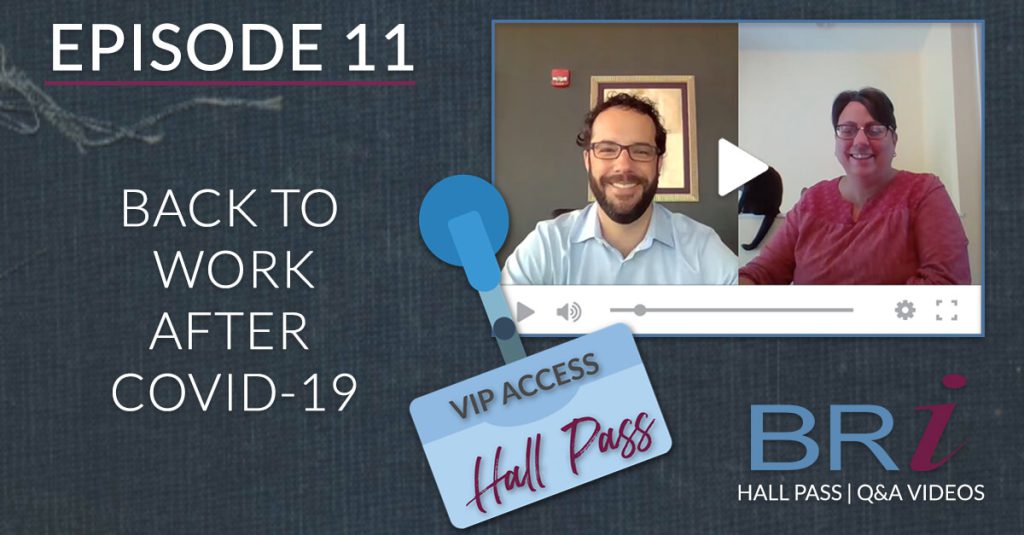CEO Jason Hall sits down with Consumer Directed Benefits Team Lead Tracy Christ in this week’s episode of Hall Pass. They discuss greater understanding of benefit plans, plan changes that may be occurring to transition back to work after COVID-19, and extended grace periods versus run-out periods.
Watch the video below:
Back to Work after COVID-19
Question 1: How has the COVID-19 pandemic helped people understand their plans better?
New regulations are encouraging employers and participants to take a closer look at their plans. Doing so helps them better understand their plans and changes that can be made. For example, until now, many participants didn’t know that a change in the cost of care is considered a qualifying event for Dependent Care FSA accounts.
Fortunately, one silver lining is that COVID-19 has triggered permanent changes related to OTC drugs and FSA election rollover maximums. For instance:
- Over-the-counter drugs & medicines. The CARES Act provision allows over-the-counter drugs and medications to be purchased with funds from a pre-tax health account without a prescription. For more information and to see other changes made, read our blog on the CARES Act.
- FSA maximum election and rollover amounts. IRS Notice 2020-33 indexes the FSA rollover limit to 20% of the annual limit going forward. For example, 2020 Plan Year elections (with a maximum contribution of $2,750) now have a maximum rollover amount of $550.
Question 2: What should employers do regarding plan changes that they have made or would like to make?
It’s important to communicate with your Specialist to ensure that plan changes can be implemented effectively. Changes may occur based on whether:
- Elections were stopped, started, or continued to occur
- Limitations were put on accounts
- Employees were active throughout the pandemic, furloughed, or terminated then re-hired
Question 3: What is the difference between an Extended Grace Period and a Run-out Period? What do they each allow?
An Extended Grace Period is the period of time after the plan year ends that expenses can be incurred using funds from the previous plan year. On the other hand, a Run-out Period is additional time after the plan year ends that participants can use to submit receipts and documentation for claim reimbursement.
Good news. The IRS and Department of Labor issued a mandatory extension for FSA run-outs based on the Outbreak Period, which is 60 days past the end of the COVID-19 National Emergency. However, dates have not yet been determined. Once they are, they will be communicated to employers.



